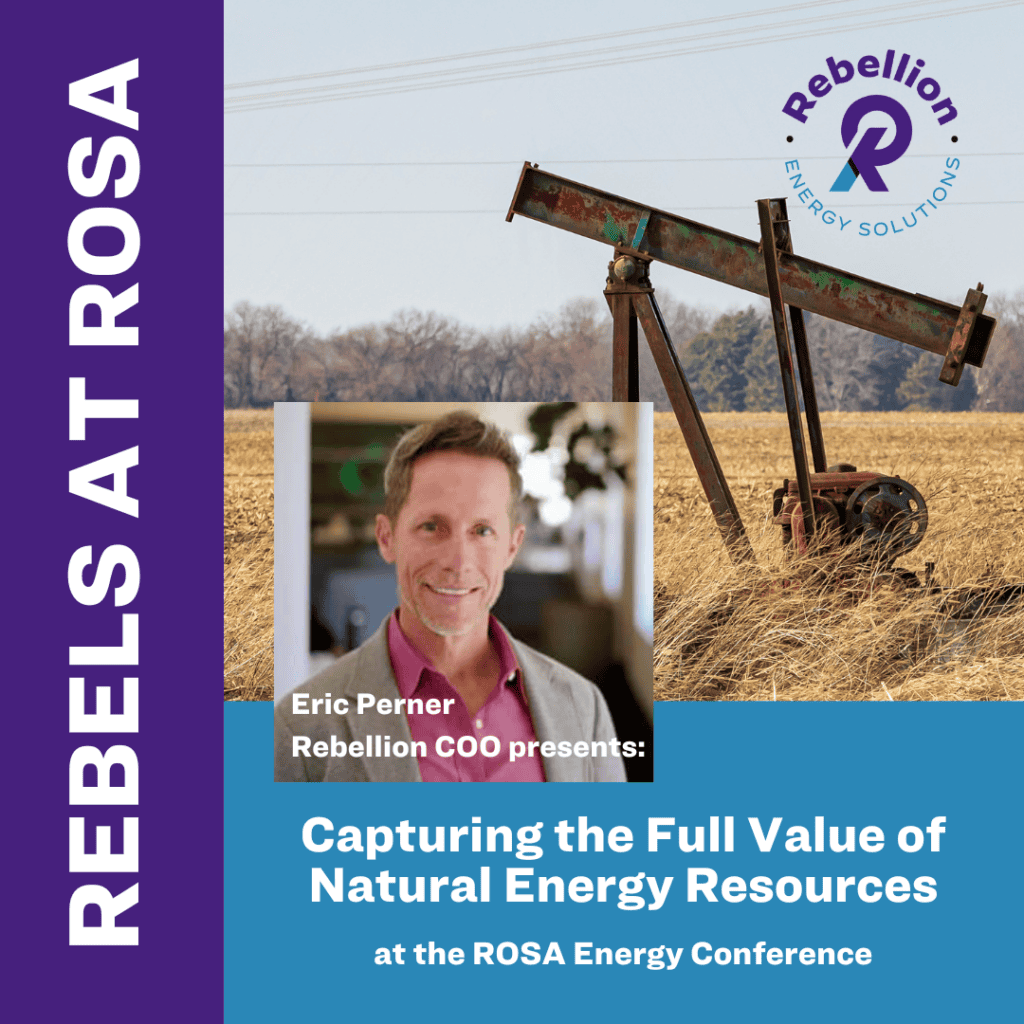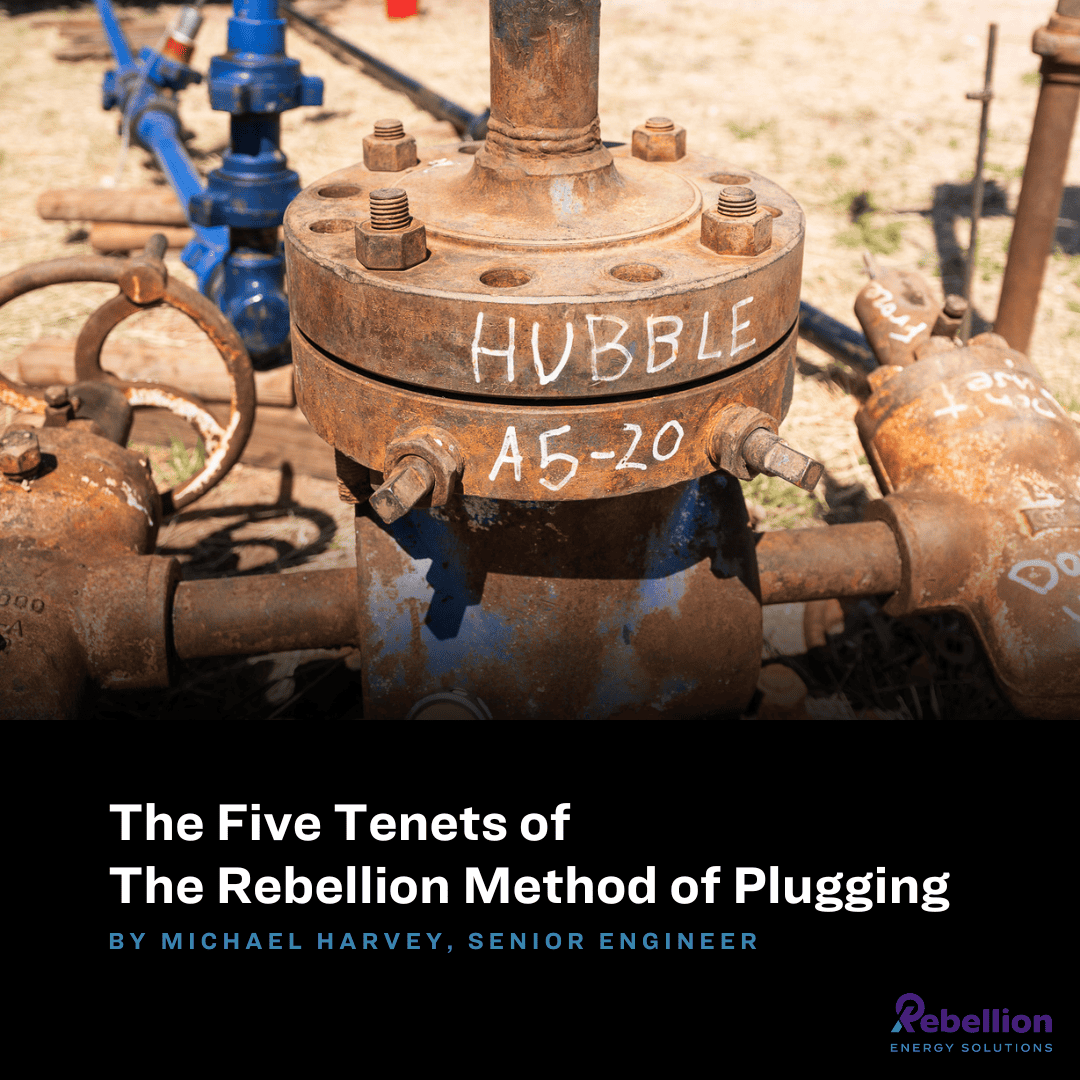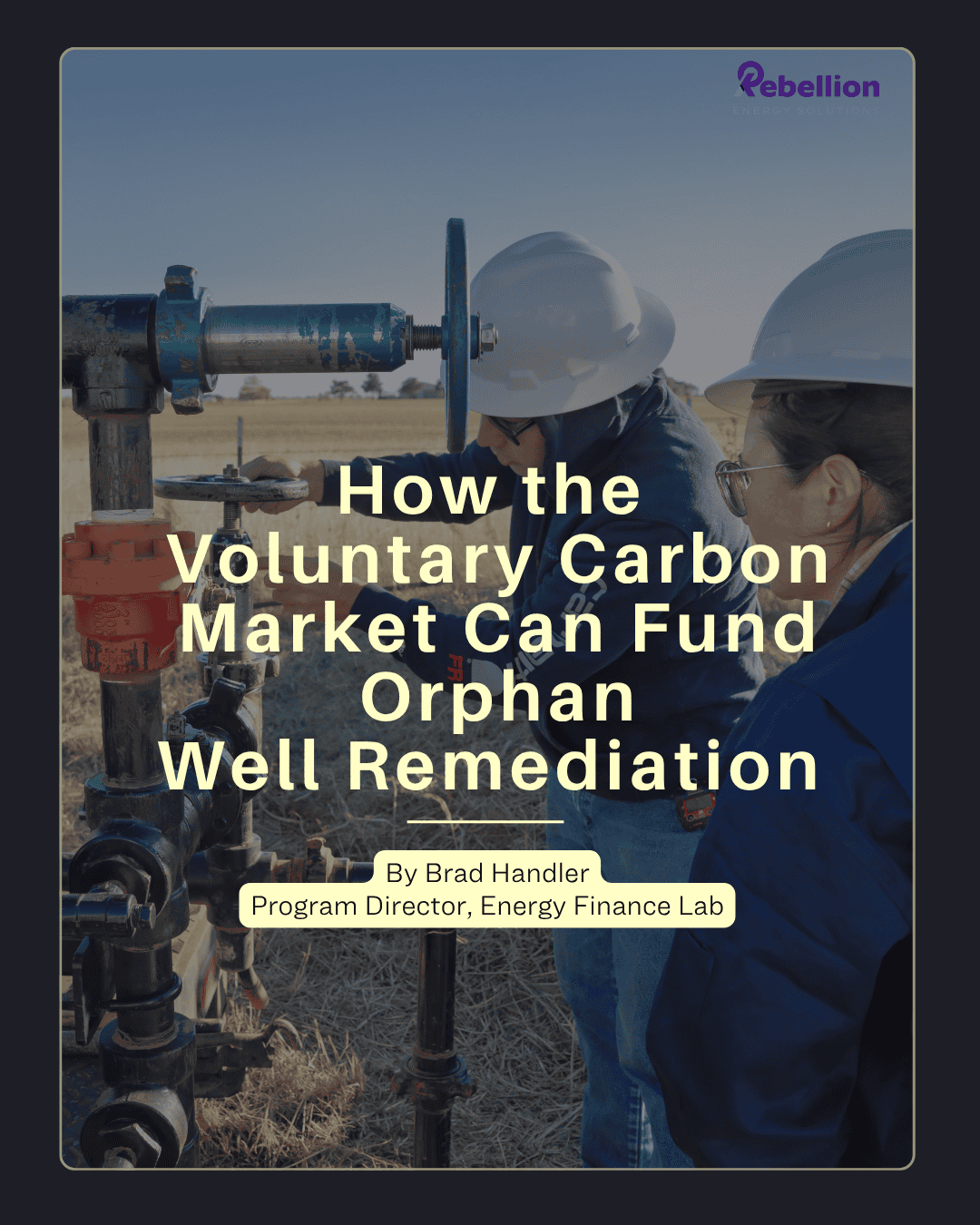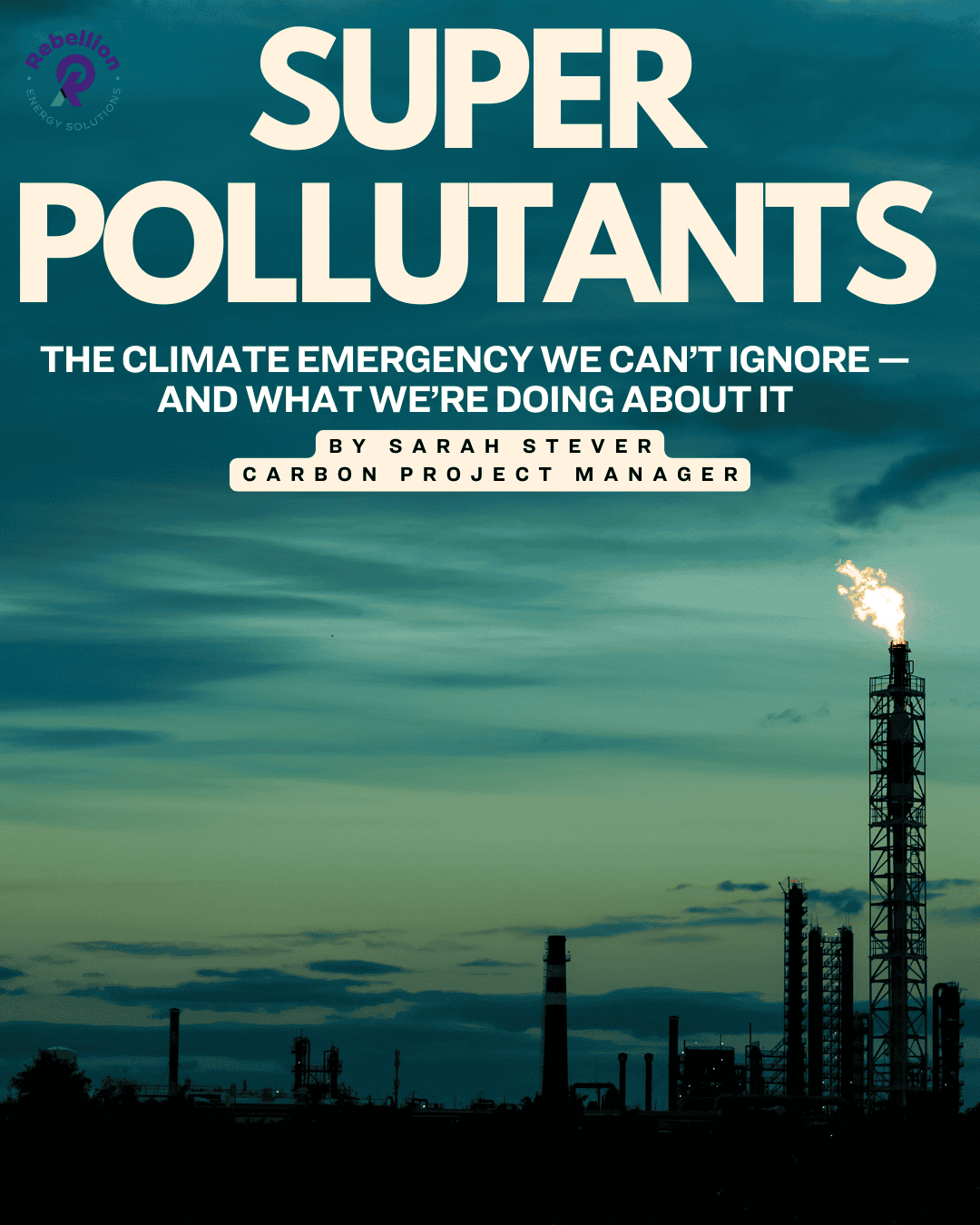Capturing the Full Value of Natural Energy Resources
A Legacy Problem with a New Solution
by Eric Perner
Later this month, Rebellion Energy Solutions COO Eric Perner will present Capturing Full Value of Natural Energy Resources at the ROSA Energy Conference, hosted by The Tribal Energy Consortium and The University of Tulsa. Below is a preview of his presentation.
I am looking forward to discussions at the ROSA Energy Conference on March 24-25, hosted by The Tribal Energy Consortium and The University of Tulsa. This event brings together industry leaders and academics to explore sustainable project life cycles, and this topic is especially relevant to Rebellion Energy Solutions, where our work focuses on tackling one of the most pressing environmental challenges in the energy sector: Orphan Wells.
At Rebellion Energy Solutions, our focus is on tackling this issue in a way that not only addresses the environmental impact but also creates a financially viable path forward to create a real solution. With over 3 million orphaned or abandoned oil and gas wells scattered across the U.S., many of which are leaking methane and other harmful emissions, the scale of the problem is undeniable. These wells pose a long-term environmental risk, threatening groundwater, soil, and air quality, while also creating financial and regulatory burdens for states. Without a responsible operator to take operatorship, these wells remain unmaintained and unplugged indefinitely, while undermining the Oil and Gas industry’s ability to attract investment and maintain its social license to operate.
During my presentation, I’ll highlight how Rebellion Energy Solutions is applying a market-based approach to address this challenge. By permanently plugging orphan wells, we generate high-quality carbon credits, which in turn provide funding for further remediation efforts. This model creates a self-sustaining cycle, allowing businesses to offset their emissions while directly contributing to meaningful land and environmental restoration.
Unlocking Opportunities for Large-Scale Land Restoration
Beyond emissions reduction, one of the most exciting aspects of this work is the potential for large-scale land restoration. Many orphan wells are located on expansive tracts of land, often in environmentally sensitive areas such as, grasslands and water sheds that feed into critical reservoirs and tributaries. By properly sealing these wells and restoring the land, we have an opportunity to not only reduce pollution but also rebuild ecosystems, improve soil and water health, and create new opportunities for sustainable land use by working with existing land owners.
This means that orphan well remediation isn’t just about fixing an old problem—it’s about creating a pathway toward healthier landscapes, and improved biodiversity. In my talk, I’ll discuss how this restoration work can benefit landowners, conservation groups, and businesses looking to invest in impactful environmental projects.
Ensuring High-Quality Carbon Credits
One of the key aspects of our approach is ensuring that carbon credits are credible, verifiable, and long lasting. In my talk, I will break down what makes a high-quality carbon credit and why this distinction is crucial for businesses looking to make real progress in sustainability:
- Real: Credits must be based on measurable and verifiable emissions reductions.
- Additional: The emissions reductions must go beyond what would happen under normal conditions.
- Permanent: Credits must represent lasting environmental benefits without risk of double counting.
This conversation is important because orphan wells represent both an environmental risk and an opportunity to drive change. Through collaboration between industry, policymakers, and investors, we can create solutions that not only address these legacy problems but also represent a commitment to a cleaner, more responsible future for Oil and Gas development.
I’m looking forward to discussing these topics at ROSA Energy Conference and connecting with others who are working on sustainable solutions for the industry. If you’re interested in learning more or attending the conference, registration details are available on the University of Tulsa’s website (ROSA Energy Conference Registration).
For more information, reach out to us at info@rebellionenergy.com.
For your safety, please avoid orphan well sites unless you have proper training, including hazard recognition, safety equipment and emergency procedures.




